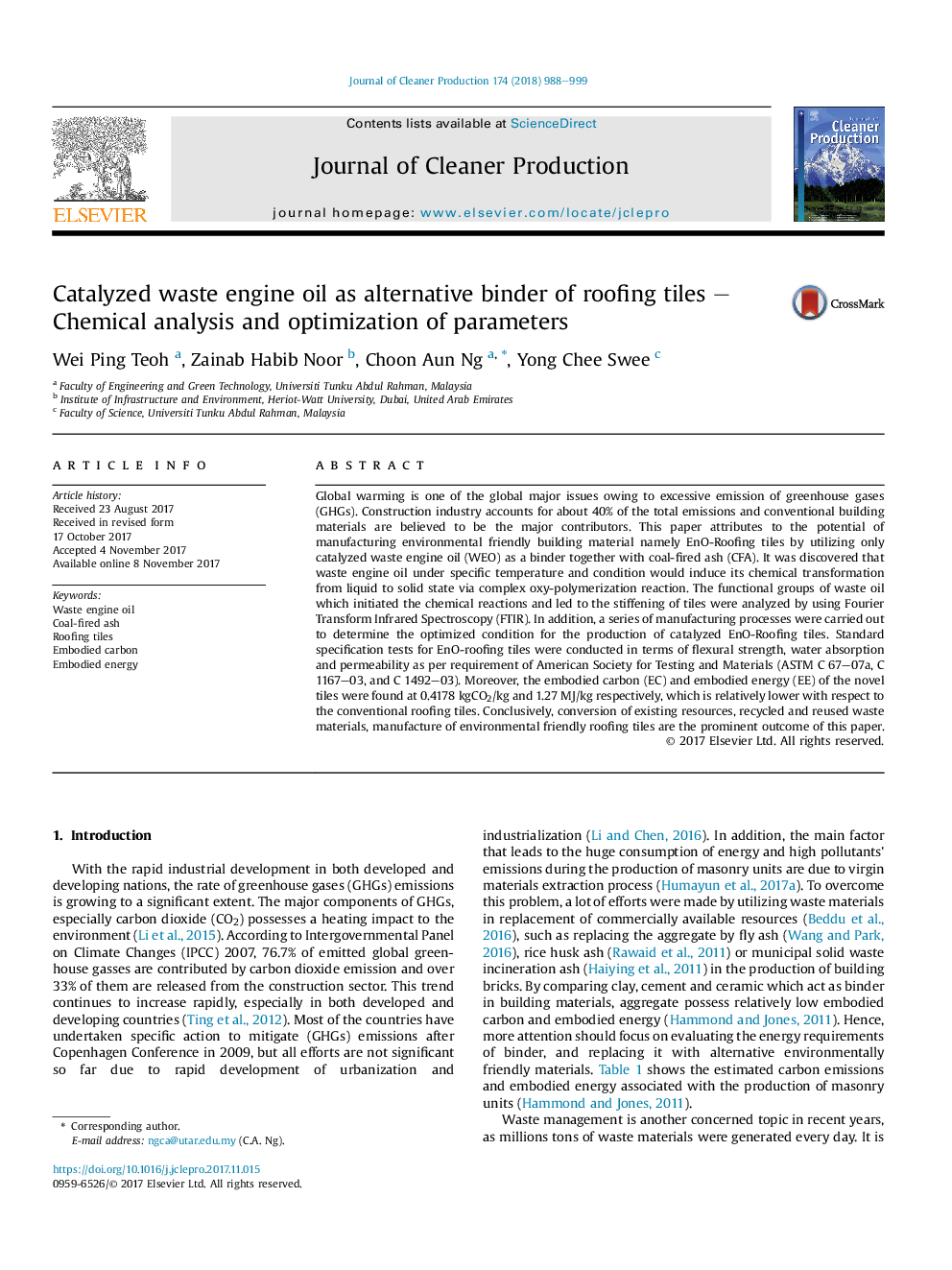| Article ID | Journal | Published Year | Pages | File Type |
|---|---|---|---|---|
| 8099700 | Journal of Cleaner Production | 2018 | 12 Pages |
Abstract
Global warming is one of the global major issues owing to excessive emission of greenhouse gases (GHGs). Construction industry accounts for about 40% of the total emissions and conventional building materials are believed to be the major contributors. This paper attributes to the potential of manufacturing environmental friendly building material namely EnO-Roofing tiles by utilizing only catalyzed waste engine oil (WEO) as a binder together with coal-fired ash (CFA). It was discovered that waste engine oil under specific temperature and condition would induce its chemical transformation from liquid to solid state via complex oxy-polymerization reaction. The functional groups of waste oil which initiated the chemical reactions and led to the stiffening of tiles were analyzed by using Fourier Transform Infrared Spectroscopy (FTIR). In addition, a series of manufacturing processes were carried out to determine the optimized condition for the production of catalyzed EnO-Roofing tiles. Standard specification tests for EnO-roofing tiles were conducted in terms of flexural strength, water absorption and permeability as per requirement of American Society for Testing and Materials (ASTM C 67-07a, C 1167-03, and C 1492-03). Moreover, the embodied carbon (EC) and embodied energy (EE) of the novel tiles were found at 0.4178 kgCO2/kg and 1.27Â MJ/kg respectively, which is relatively lower with respect to the conventional roofing tiles. Conclusively, conversion of existing resources, recycled and reused waste materials, manufacture of environmental friendly roofing tiles are the prominent outcome of this paper.
Related Topics
Physical Sciences and Engineering
Energy
Renewable Energy, Sustainability and the Environment
Authors
Wei Ping Teoh, Zainab Habib Noor, Choon Aun Ng, Yong Chee Swee,
